Daniel S. Matthews brings us this fourth article for our Sacking of Rome Series.
It is the unexpected turns that vex empires the most. Rome did not expect Hannibal to cross the Alps, the French did not expect the dramatic events of Quiberon Bay, the British had their guns pointed the wrong way at Singapore, we were not prepared for World War III to start in Canada.
 Thought of Canada being the region where the sparks for World War III will be struck may not seem likely, but there is one area where a foreign foe could surprise the West: Quebec. If Quebec were to secede from Canada, two unsettling possibilities could occur. The first is that Canada could go to war with its wayward province. The second is that some power like China or Russia could build an alliance with Quebec. While such possibilities are unlikely, there are means of defense.
Thought of Canada being the region where the sparks for World War III will be struck may not seem likely, but there is one area where a foreign foe could surprise the West: Quebec. If Quebec were to secede from Canada, two unsettling possibilities could occur. The first is that Canada could go to war with its wayward province. The second is that some power like China or Russia could build an alliance with Quebec. While such possibilities are unlikely, there are means of defense.
The Canadian Civil War
If Quebec were to secede from Canada, there are several points that could spark a civil war between the two. The least likely would be national pride. There are several economic reasons that could provide the tinder for war. Quebec controls the mouth of the St. Lawrence River, and Quebec could use that control to wage economic war with Western Canada. In addition, Quebec possesses significant reserves of natural resources that currently contribute to the North American economy on a free basis. An independent Quebec would change that. Finally, Canada proper would become a split country, with a third of Canadian provinces being geographically separated from the Capital. In light of the fact that no state wants to be divided, and Canada already has several fluttering independence movements, the urge to prevent further dissolution will be strong.
While it is true that Canada does not have a large military, and Quebec has none, it is not impossible for war to break out. The Quebec separatists have used violence before, most notably with the murder of Quebec Labour Minister Pierre Laporte, and it would be easy for a semi-independent Quebec to buy arms on the international market.
If Canada did get involved in civil war with Quebec, there are several options open to both sides if the war drags on. Canada could invoke Article 5 of the NATO treaty, which could split NATO as France has traditionally expressed support for Francophone Quebec. It is unlikely Britain would be unconcerned with a core Commonwealth state being embroiled in civil war; especially depending on how the vote for Scottish independence goes this year. The United States would be committed, as they are deeply intertwined with Canada at every level.
States like Russia, China, or Iran could use the distraction of a civil war in the very center of the Anglosphere to press their boundaries with the Western Alliance. Furthermore, they could start supporting the Quebec rebels, either directly or through third party means. If the war was presaged by an internationally recognized referendum, then Russia or China could take the position that they are upholding international norms, and paint the Western states in a negative light. Attempts at arming the rebels or openly supporting them would directly threaten the fundamental security of the United States, as it would provide a foothold on the continent from which hostile states could threaten the United States.
The Bear and the Dragon in Quebec

While the first scenario of a successful Quebec independence movement immediately descending into world war is unlikely, the far more dangerous one of an independent Quebec making allies with states hostile to the West is possible. An independent Quebec would have the full ability to make alliances with foreign powers, and it is unlikely they would be readily welcomed into NATO, NAFTA, or other treaties with the Western powers. Canada would put pressure on any attempts to allow Quebec a seat at the table, and European countries would be wary of admitting Quebec, as it could fuel separatist movements within their own countries.
In addition, the United States would not want the possibility of Canada dissolving, even if most of the providences would likely join the United States. This method of amalgamation would be undesirable, if for no other reason than there is no guarantee that each section of Canada would join the US, and a unified Canada is better for the US than a series of states on its northern border. The dissolution of Canada could also embolden separatist movements in the United States.
Given the internal danger to Western countries an independent Quebec would present, it is likely that Quebec would be forced to look for friends elsewhere. Russia and China are the most likely candidates. Both countries would be interested in the natural resources of Quebec. China and Russia would also both enjoy the prospects of helping to develop Quebec’s Arctic resources. In addition, the possibility of a military alliance with Quebec would present an opportunity not present since Alaska became part of the United States; a land connection to the United States.
Right now the Anglosphere is protected by its island status, with no major hostile powers sharing a land border with any member. An independent Quebec would be courted by hostile powers to allow such a chance thought. Russia would view it as retaliation for NATO expanding into the Baltics, Poland, and developing close relations with Ukraine and Georgia. China would view it as a chance to have a mirror for the US alliances in China’s First Island Chain, with the added bonus of a large land connection to the American heartland, as opposed to the slender one that the US has against China on the Korean peninsula. The presence of a near-peer competitor with bases on the North American heartland would greatly reduce the flexibility of Western countries as they exert their influence on the world. Such a situation would be more bothersome to the United States and its allies than the Zimmerman telegram of a century ago, or the presence of Soviet missiles in Cuba half a century ago. It would have the same effect as Germany’s race to rival Britain on the high seas before World War I.
Possible Western Responses
Despite the perils presented by an independent Quebec, there are steps that the US and its allies can take to mitigate the dangers. The easiest remedy would be to continue the integration of the US and Canada, so that Quebec does not have economic or cultural incentives to break away. In addition, the West should focus more on promoting its unifying cultural values internally to provide less fuel for separatist movements. The US and Canada should also do more to encourage English proficiency, to increase the bonds of unity within and between both countries.
Internationally, the West should focus less on supporting the forms of Western states, elections being a key issue, and more on cultural reforms such as the acceptance of the loyal opposition, freedom of the press, and the like. Encouraging every group that wanted its own state did not work well for the peace, freedom, and stability of Europe from 1815 to 1939; it is not going to work well elsewhere. Such an approach would help cement the cultural idea that it is undesirable for states to break up along ethnic lines.
Finally, if Quebec does become independent, the West must make every effort to keep them within the Western sphere of influence. The United States should immediately offer closer association with the rest of Canada to stress the message of unity. An independent Quebec can be offered membership in the trade agreements that the Western nations have with one another and limited military exchange. Alternatively, a Canadian confederacy could be proposed where Quebec has almost total control over domestic affairs, but for international relations, it would still be part of Canada.
Militarily, Quebec already has more ties with Western countries, as they have served in the unified Canadian armed forces since that country was formed. Quebec citizens have served alongside the armed forces of other Western nations and have developed close ties; therefore, they would likely want to maintain those bonds. This should be encouraged.
As a final point, if hostile foreign powers do make inroads to an independent Quebec, the US should step up integration with its allies militarily and economically so to prevent further wedges being driven between the parts of the alliance. Alliances are easier to break apart than unified countries, and neither Russia nor China would want to face a unified power stretching from Japan to Eastern Europe.
Lieutenant Daniel S. Matthews is currently assigned to Marine Corps University, preparing to take over the role as Naval Gunfire Liaison Officer for III MEF. He has served in a wide range of sea and shore billets. LT Matthews is a native of Warrenton, Virginia, and graduated from Old Dominion University in 2007.
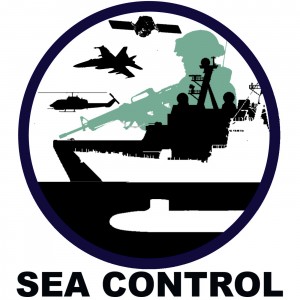 In light of the MH17 disaster in Eastern Ukraine, we re-air Sea Control 25: The Crimean Crisis (with three CIMSEC writers: Dave Blair, Viribus Unitis, and Robert Rasmussen). As we discuss this disaster, how it will shape the continuing conflict, and how those involved should proceed – we must keep ourselves honest. With the months of pontification on Ukraine – there are lessons we can learn from how wrong, or right, those past selves were. This podcast covers Russian intentions, Ukranian governance, passive resistance, Maidan, and the EU/NATO.
In light of the MH17 disaster in Eastern Ukraine, we re-air Sea Control 25: The Crimean Crisis (with three CIMSEC writers: Dave Blair, Viribus Unitis, and Robert Rasmussen). As we discuss this disaster, how it will shape the continuing conflict, and how those involved should proceed – we must keep ourselves honest. With the months of pontification on Ukraine – there are lessons we can learn from how wrong, or right, those past selves were. This podcast covers Russian intentions, Ukranian governance, passive resistance, Maidan, and the EU/NATO.
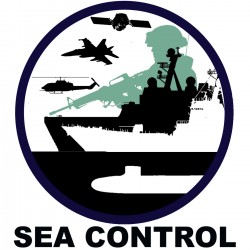
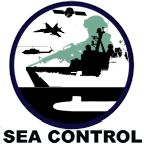 Dean Cheng joins us to discuss China. Like a flourless brownie, this podcast is dense and delicious. We hit China’s goals and perspectives: From the Chinese “status quo”, to the South China Sea, to India, to the use of crises as policy tools. If you want to see behind the headlines, this is your podcast.
Dean Cheng joins us to discuss China. Like a flourless brownie, this podcast is dense and delicious. We hit China’s goals and perspectives: From the Chinese “status quo”, to the South China Sea, to India, to the use of crises as policy tools. If you want to see behind the headlines, this is your podcast.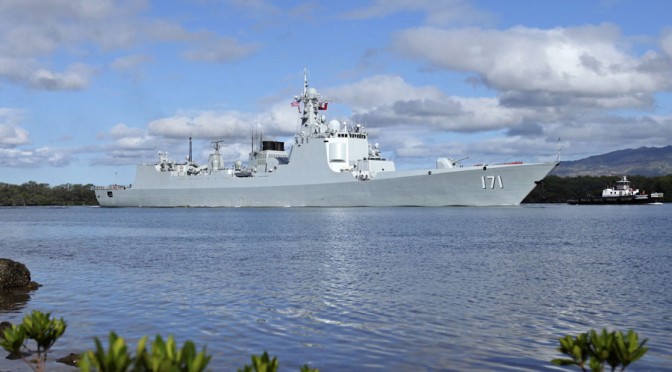
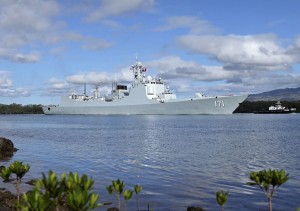
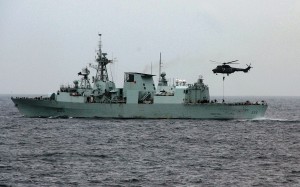
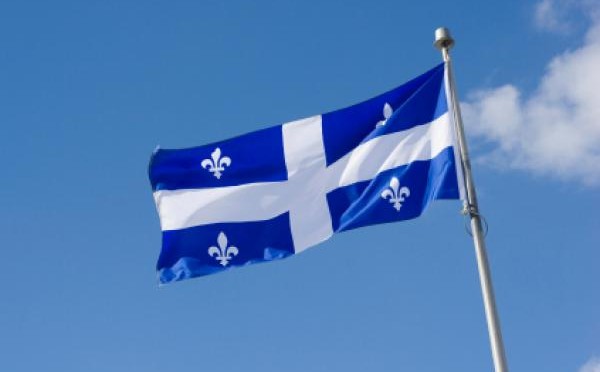
 Thought of Canada being the region where the sparks for World War III will be struck may not seem likely, but there is one area where a foreign foe could surprise the West: Quebec. If Quebec were to secede from Canada, two unsettling possibilities could occur. The first is that Canada could go to war with its wayward province. The second is that some power like China or Russia could build an alliance with Quebec. While such possibilities are unlikely, there are means of defense.
Thought of Canada being the region where the sparks for World War III will be struck may not seem likely, but there is one area where a foreign foe could surprise the West: Quebec. If Quebec were to secede from Canada, two unsettling possibilities could occur. The first is that Canada could go to war with its wayward province. The second is that some power like China or Russia could build an alliance with Quebec. While such possibilities are unlikely, there are means of defense.